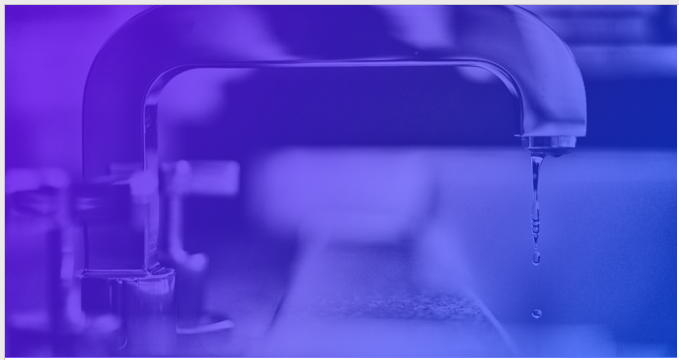Property Management Guide: Plumbing Issues and Leaks

Property management involves a multitude of responsibilities, and one crucial aspect is ensuring the proper functioning of plumbing systems within a property. Plumbing issues and leaks can cause significant problems if left unaddressed, including water wastage, property damage, and high repair costs. In this guide, we will explore plumbing issues and leaks, their common causes, preventive measures, and how property managers can effectively manage and mitigate these concerns.
What is a Plumbing Leak?
Plumbing leaks refer to the leaks that occur when the pipelines that deliver water to your various water-run household appliances develop leaks at certain connectivity joints. The household appliances themselves can be faulty and can leak when damage occurs to them with age or faults.
The main plumbing pipes run underground and through the walls in residential property and sometimes leak due to the normal wear and tear that comes with age. Most of these water pipes are not visible to the naked eye and cause major leaks that can flood your property.
Plumbing issues and leaks result in water being wasted, damage to the property, short-circuits, and high water bills. Therefore, it is very important to trace the problem and fix it as soon as possible.
Where Does It Occur In The Property?
Plumbing issues and leaks typically happen in the bathroom, kitchen, laundry room, garden, basement, or any other place in the home that has a water connection. In general, the following households and plumbing accessories are susceptible to plumbing leaks or other appliance-related issues.
-
Kitchen faucets
-
Kitchen sinks
-
Dishwashers
-
Washing Machines and tumble dryers
-
Bathroom faucets
-
Bathroom sinks
-
Toilets
-
Shower faucets and showerheads
-
Bathtub faucets
-
Drains
-
Water heaters
-
Boiler joints
-
Gardens
-
Underground and main water pipelines
-
Waterline joints
What Are The Causes of Plumbing Issues and Leaks?
You can prevent a costly plumbing repair if you know the reasons for the plumbing leaks in your residence. Following are few common causes that lead to household and plumbing system water leaks in a property.
-
Broken water appliance seal connectors cause leaks and water puddles that surrounds the household appliances.
-
Blocked water lines lead to overflow and backpressure and result in burst pipes.
-
Rust and corrosion cause discolouration and bends, and may eat away the old pipes.
-
Weak water pipeline joints are not visible and start to leak by weakening over time.
-
Uneven or high water pressure causes strain on the pipes and faucets that can lead to leaks.
-
Tree roots can grow inside the water lines that cause blocked drains and leaks in the whole plumbing system.
-
Lose connections to water appliances are common reasons for a plumbing leak.
-
Household water appliances such as boilers, water heaters, toilets, fixtures, and showerheads can become faulty and cause consistent leaks that contribute to the high water bill.
-
Harsh weather conditions can cause the water pipelines to contract and expand and develop leaks.
What Are The Remedies Available?
Small water leaks are easy to diagnose and fix. Therefore, you can do the repairs yourself before calling a professional plumbing service. For more serious plumbing issues, it is best to look for the signs to evade a catastrophe and leave the job to the professionals. You can do the following for different plumbing issues.
-
Regularly Inspect all water run appliances for leaks.
-
Replace the washers in the kitchen and bathroom faucets if they are leaking.
-
Clear the kitchen and bathroom blocked drains to fix sink and bathtub leaks.
-
Look for any sign of water leaks on the pipe joints beneath the sinks.
-
Apply plumber tape and epoxy paste to the leaking plumbing pipes.
-
Identify the cause of the leak in the boiler. Check the boiler’s pressure gauge to see if it is over-pressurized. Bleed the radiators to release excessive water pressure.
-
Check the water heater tank and see if the water inlets, outlets, and drains are leaking. Also, check for internal leaks by inspecting the bottom of the tank for any sign of water accumulation.
-
Use water meters to check for any leak in the whole plumbing system.
-
Clear the blocked drains to ensure pipes don’t crack by water buildup.
-
Turn off the water safety valve in case of flooding by a burst pipe.
-
Check for wet patches in the garden to rule out any water leaks in outside plumbing pipes.
Are there any legal implications?
The landlords are responsible for major or minor plumbing repairs and to make sure that the property is safe for living. However, the tenancy agreement can mention that the tenant is responsible for minor issues such as faucet leaks while the landlord is responsible for major repairs and replacements for water appliances and plumbing system upgrades.
If a tenant contacts the landlord and he or she is unwilling to do the plumbing repair or replacement, the tenant can take the landlord to court for compensations, case fees, or forceful repairs.
If the plumbing system of the residential property or water appliances are damaged by the tenant, he or she is liable to pay for the repairs and replacements.
What To Consider As A Property Manager?
Sometimes, the landlord appoints a property manager to deal with checks, repairs and replacements of plumbing accessories and appliances. In that case, the property manager is responsible for:
-
Periodic visits to the residential property to check the plumbing system and appliances for leaks or defects.
-
Checking boilers, radiators and water heaters fittings.
-
Ensuring all plumbing pipes and kitchen/bath accessories are in working condition and shows no corrosion.
-
Tend to the tenant’s request for minor or major water leaks.
-
Visit the property to identify the source of the leak and take photographs as evidence.
-
Contact a certified plumber to come and visit the property for cost estimation.
-
Letting the landlord know and approve the repairing costs.
-
Getting the work done by a certified plumber and ensuring quality.
Tenant Factsheet
- Notify your landlord or property manager regarding essential plumbing repairs.
- Ensure the plumber has convenient access for necessary repairs.
- Perform minor repairs independently, such as replacing seals and applying plumbing tape to leaks.
- Use fixtures and fittings appropriately, refraining from flushing inappropriate items down the toilet.
- Handle household appliances with care and use them gently and correctly.
Want your property management done right? Let’s talk!
Please, feel free to drop an email to sales@loftyworks.com or message us on WhatsApp at +44 330 321 3500 and we can show you how we can help.
Want to see other property management guides? Read about Gas Leak, Mould Prevention, Blocked Drains and more.
1208
views
7


